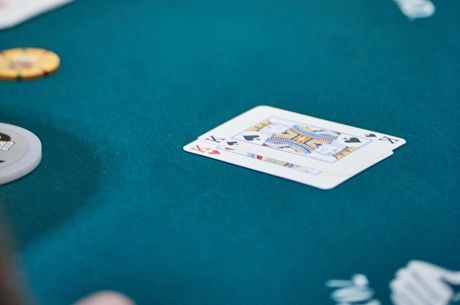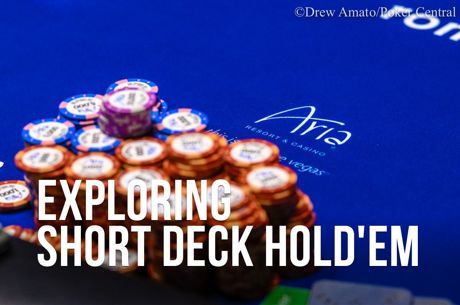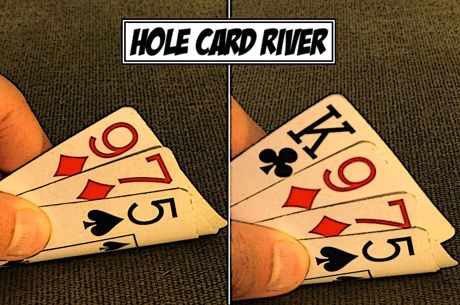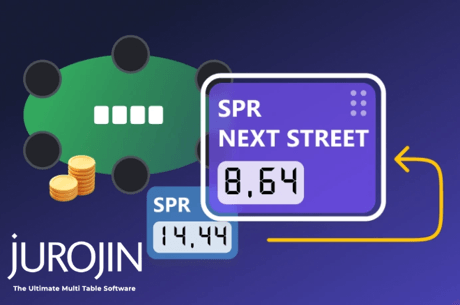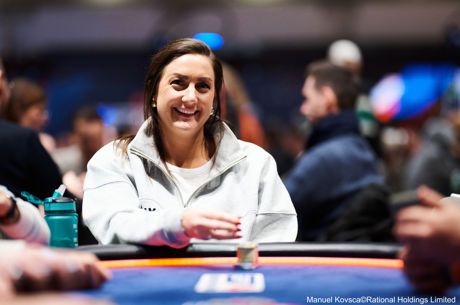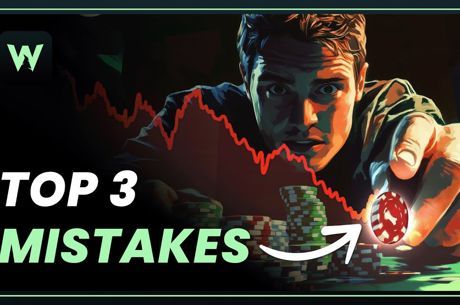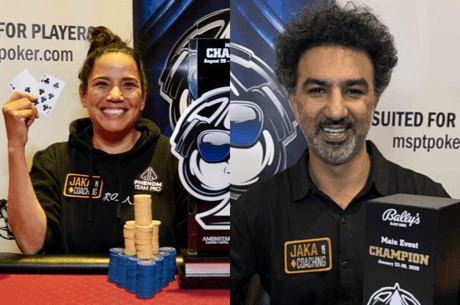Poker and Sports: Overlapping Strategies and Concepts

The last few weeks have been a lot of fun for sports fans. The NCAA Tournament (a.k.a. "March Madness") played out to its conclusion, the Major League Baseball season started, the NBA and NHL playoffs got underway, and the Masters Tournament wrapped up in exciting fashion on Sunday.
Poker players watch sports in a particular way, I'm convinced. I'm not referring to betting on games or playing daily fantasy sports, both of which many poker players enjoy. I'm referring to the way those who think a lot about poker strategy constantly see parallels in sports that reinforce certain concepts or ideas about how to win at poker.
Amid all the recent sports highlights, a few examples of this phenomenon have stood out. I'll just highlight three of them.
1. Understanding Probabilities: Virginia's Improbable Title Run
A year ago the Virginia Cavaliers became the first No. 1 seed ever to lose to a No. 16 seed in the first round of the NCAA tournament. The tournament expanded to 64 teams in 1985, and before 2018 the top-seeded teams in each of the four regions had a record of 132-0 in first-round games. That streak ended when No. 16 University of Maryland, Baltimore County Retrievers shockingly whipped No. 1 Virginia by 20 points.
On ESPN and other places where fans can follow stats and play-by-play information for ongoing games, one can find a graph indicating "win probability" from the start of a game until its completion. Different sites use different information to calculate WP, using a lot of historical data to compare a particular game situation to what has happened in the past in order to project a game result.
As Virginia won the jump ball to start of that first-round game against UMBC a year ago, the Cavs' win probability was 98.6 percent. When they finished the first half tied at 21-21, Virginia was still described as an 88.3 percent favorite to win. It wasn't until Virginia fell behind by double-digits a few minutes into the second half that UMBC started to enjoy a greater than 50 percent WP.
Virginia redeemed themselves this year by again coming in as a No. 1 seed and this time winning six straight games to claim the NCAA title. Along the way, they pulled off a couple of remarkable comebacks — once versus the Purdue Boilermakers in the round of eight, and another against the Auburn Tigers in the semifinals.
Against Purdue, Virginia was down by two with five seconds left and shooting the second of two free throws, at which point the WP of a Purdue win was 91.0 percent. After missing the free throw a wild scramble ensued, ending with the Cavs hitting a last-second shot to force overtime where they went on to win.
Against Auburn, Virginia was down 61-57 with 17 seconds left, at which point Auburn's win probability was 92.4 percent. But the Cavs' Kyle Guy hit a three-pointer, then after Auburn hit one FT Virginia was fouled on another three-point attempt and Guy hit three FTs to give Virginia an improbable 63-62 victory.
"Improbable" is the right adjective to use there. Experienced poker players know how probabilities work, and how being a heavy favorite doesn't preclude the possibility of losing. When we get all of our chips in preflop with A♥A♠ versus an opponent's 7♣2♦, we're delighted to enjoy a better than 87 percent chance of winning the pot. But we know as well that a little over 12 percent of the time we'll lose.
In the last two years of NCAA tournaments, Virginia has experienced both sides of that.
For more about understanding probabilities in poker, see "You Are Less Unlucky at Poker Than You Think."
2. Dealing With Downswings: Chris Davis Goes 0-for-54
You probably also heard about the Baltimore Orioles' first baseman Chris Davis getting off to an awful start at the plate to the 2019 season. In fact, it was historically awful.
After ending 2018 hitless in his last 21 at-bats, Davis went 33 more ABs to begin this year without getting a hit. The 0-for-54 slump was the worst ever experienced by a non-pitcher in MLB history, the previous record having been 0-for-46.
It wasn't as though the 33-year-old was incapable of hitting well. In fact, Davis led the league in home runs twice during his career. In 2013 he finished third in the voting for American League MVP after hitting 53 home runs, driving in 138 runs, and having a career-high .286 batting average.
As the at-bats without hits continued and especially after he broke the record, Davis' slump attracted a lot of attention. To his credit, he continued to grant interviews and answer questions about the streak, even as it became increasingly obvious how difficult it was to endure.
Like poker, baseball is a game that combines skill and luck. Davis had made solid contact many times during the streak, but unfortunately kept hitting balls at fielders, not between them.
Finally this past Saturday, a ball Davis hit dropped safely into right field, giving him a single to end the streak. He'd get two more hits (a couple of doubles) before that game was over, and yesterday picked up his first home run of the year.
Experienced poker players know all about how variance works, and that the game's chance element ensures bad streaks will happen even when a player makes consistently smart, "positive EV" decisions. How well we handle those inevitable stretches when things don't go our way has a lot to do with whether or not we'll be able to endure such downswings, and — eventually — to start winning again.
For more about battling through misfortune, see "Five Ways to Start Climbing Out of a Poker Downswing."
3. Being Patient and Letting Others Make Mistakes: Tiger Takes Advantage
Finally, Tiger Woods grabbed all the sports headlines on Sunday by winning his 15th major title and fifth Masters, completing a lengthy and difficult climb back after having gone more than a decade since winning his last major.
I won't rehearse the fascinating story of the 43-year-old's struggles over recent years and his triumphant return to capture the prestigous green jacket at Augusta. I did, however, want to highlight one short sequence from the final round when the tide turned in Woods' favor — one that recalls yet another bit of poker-related strategy advice.
You often hear in poker how rather than try to make "fancy plays" or force the action, it is often better to adopt a more conservative approach and wait for other players to make mistakes before taking advantage. In a lot of scenarios, simply playing a solid, disciplined game can be profitable as other players become impatient and take chances they shouldn't.
On Sunday, the 12th hole proved to be the undoing of several players. Leader Francesco Molinari hit his tee shot into the water on the par 3. So, too, did Tony Finau, the other player in Woods' threesome. Two others playing in the previous group did so as well, with all four players ultimately shooting double-bogey fives on the hole.
Woods meanwhile made par on the hole, enabling him to tie Molinari for the lead. He continued to play steady for the remaining six holes while others faltered, ultimately coming away with a one-shot victory.
Obviously, it's easier said than done to remain cool during the final round of the Masters and drop a tee shot on the green right in the middle of the famed "Amen Corner." But the principle nonetheless applies. In poker, you can sometimes be just as successful letting others "give" you their chips via their mistakes as by trying to "take" them by cleverly outplaying others.
For more on recognizing (and taking advantage of) opponents' mistakes in tournaments, check out the following series of articles:
Photo: "Golfer hitting a golf ball,” CC0.

